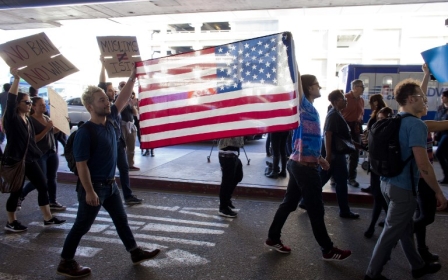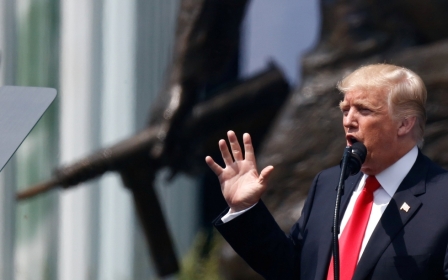US court denies Hawaii bid to narrow Trump travel ban
A US appeals court on Friday denied the state of Hawaii's request to issue an emergency order blocking parts of President Donald Trump's temporary travel ban on people from six Muslim-majority countries.
The 9th Circuit Court of Appeals in San Francisco said it did not have jurisdiction to act on Hawaii's request. The US Supreme Court last month let the ban go forward with a limited scope, saying it could not apply to anyone with a credible "bona fide relationship" with a US person or entity.
The Justice Department has determined that applicants from Iran, Syria, Libya, Sudan, Somalia and Yemen must prove a relationship with a parent, spouse, child, adult son or daughter, son-in-law, daughter-in-law or sibling in the United States.
The guidelines left out extended family members, including grandparents.
A Honolulu judge on Thursday rejected a request by Hawaii to narrow the government's implementation of the ban, saying the state should directly ask the Supreme Court to clarify its ruling.
Instead, Hawaii appealed to the 9th Circuit Court of Appeals, saying in a court filing on Friday that the appeals court has the power to narrow the travel ban while it decides how to interpret the Supreme Court's ruling.
"Every day that passes is a day when our government is turning away human beings - newborn children to elderly grandparents ...," Hawaii wrote in its court filing.
After the judge's ruling on Thursday, the department had said that it was "confident that the US Supreme Court will again vindicate the president".
Justice Department lawyers have argued that its definition of close family "hews closely" to language found in US immigration law, while Hawaii's attorney general's office said other parts of immigration law include grandparents in that group.
The Supreme Court reinstated parts of Trump's executive order, which has become known as the "Muslim ban," until it rules on its constitutionality in October. Lower courts had blocked the executive order, ruling that it is discriminatory.
Middle East Eye propose une couverture et une analyse indépendantes et incomparables du Moyen-Orient, de l’Afrique du Nord et d’autres régions du monde. Pour en savoir plus sur la reprise de ce contenu et les frais qui s’appliquent, veuillez remplir ce formulaire [en anglais]. Pour en savoir plus sur MEE, cliquez ici [en anglais].




